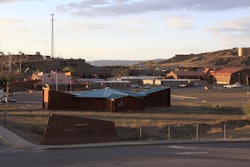After years of lagging infrastructure and decades of broken promises, Indian country is set to receive potentially lifechanging funding: $11 billion to improve broadband, transportation, water and electricity access, new energy technologies, and help confronting climate change.
This funding is part of the $1 trillion bipartisan infrastructure bill, which passed through the Senate in August. The U. S. House of Representatives agreed to advance the bill, but it’s still waiting for a final approval vote, which should happen on or by September 27. House Speaker Nancy Pelosi has said she is committed to the bill’s passage.
 Carrie Billy, president of AIHEC
Carrie Billy, president of AIHEC
For Carrie Billy, president and CEO of the American Indian Higher Education Consortium (AIHEC), the funding could mark the beginning of a new opportunity to build stronger tribal nations.
“When you take the infrastructure bill, the Jobs Act, and the American Families act, it’s a once in a lifetime investment that we have never had in Indian country, that we need,” said Billy. “It’s as transformative to Indian country as it has been to the rest of the U.S. It’s just that the rest of the U.S. got it decades earlier.”
The funding could ultimately improve educational access, opportunities, and community—if done correctly. But currently, the National Telecommunications and Information Administration’s Department of Commerce has restricted these broadband funds from Tribal Colleges and Universities (TCUs) and tribal governments, and the cost of broadband, electrical, and water services in rural areas brings its sustainability into question.
“There will finally be drinking water in a lot of homes that don’t have safe drinking water—to have running water, to have electricity, to have broadband access—that’s critically important and life changing,” said Billy. “But being able to pay for it long-term is a challenge right now.”






















